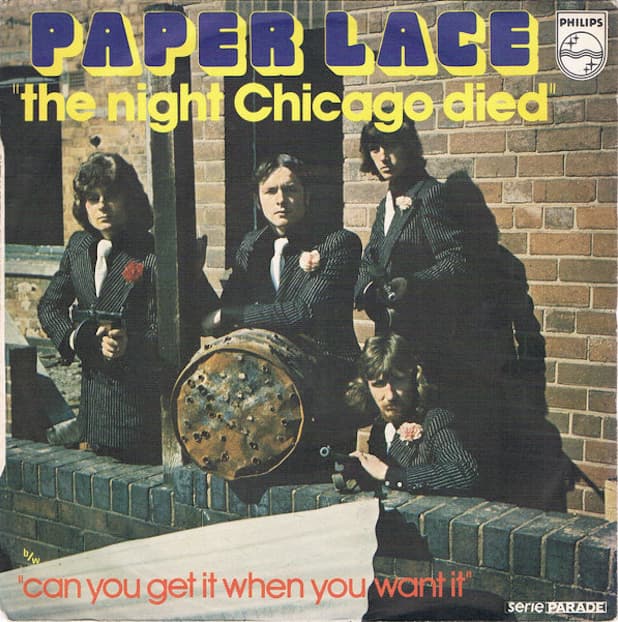
The Night Chicago Died: A Ballad of Love, Loss, and the Gangster Era
In the realm of popular music, there exists a subgenre often referred to as “novelty songs.” These are tunes that typically feature a catchy melody, a memorable hook, and lyrics that tell a story, often with a touch of humor or lightheartedness. While novelty songs may not always be taken as seriously as other forms of music, they can nonetheless be incredibly enjoyable and enduring. And among the many novelty songs that have graced the airwaves over the years, few have achieved the level of success and cultural impact as “The Night Chicago Died” by the British pop group Paper Lace.
Released in 1974, “The Night Chicago Died” took the world by storm, topping charts in both the United States and Canada and reaching number three in the United Kingdom. The song’s popularity was undeniable, and it quickly became a staple of radio playlists and dance floors. But beyond its catchy tune and infectious rhythm, “The Night Chicago Died” also captivated listeners with its poignant and evocative storytelling.
Set against the backdrop of Prohibition-era Chicago, the song narrates a fictional shootout between the city’s police force and members of the notorious Al Capone Syndicate. Through the eyes of a young boy, we witness the unfolding tragedy as he anxiously awaits news of his father, a police officer caught in the crossfire. The song’s lyrics paint a vivid picture of the violence and chaos that engulfed the city that night, while also capturing the raw emotions of fear, uncertainty, and loss experienced by the innocent bystanders.
The opening lines of the song, spoken rather than sung, set the scene immediately:
“On a cold winter’s night in the year of nineteen twenty-nine, A bullet pierced the air and left a mother crying.”
These stark and somber words immediately transport the listener back in time, establishing the era and foreshadowing the tragic events to come. The song then transitions into a more traditional ballad style, with a catchy melody and memorable chorus that further drives home the narrative.
As the song progresses, we are drawn deeper into the emotional turmoil of the young narrator. He describes his mother’s frantic pacing, her desperate pleas for information, and the agonizing silence that fills their home as they wait for news of his father’s fate. The ticking of a clock throughout the song serves as a constant reminder of the passing time and the growing anxiety that grips the family.
The song’s climax arrives with the news of the father’s death, delivered in a telegram that shatters the fragile hope that had been clinging to the family. The narrator’s world crumbles around him as he grapples with the loss of his father and the realization that his life will never be the same.
“The Night Chicago Died” concludes with a somber reflection on the events of that fateful night. The young narrator, now grown older, looks back on the tragedy and acknowledges the profound impact it had on his life. He speaks of the scars that remain, the memories that haunt, and the lessons learned.
Despite its dark subject matter, “The Night Chicago Died” is not a song that wallows in despair. Instead, it is a testament to the resilience of the human spirit, the power of love, and the enduring hope for a better future. The song’s message of love, loss, and the enduring impact of violence remains as relevant today as it was when it was first released. And its catchy melody and poignant lyrics continue to captivate audiences of all ages, ensuring that “The Night Chicago Died” will remain a cherished part of popular music history for generations to come.